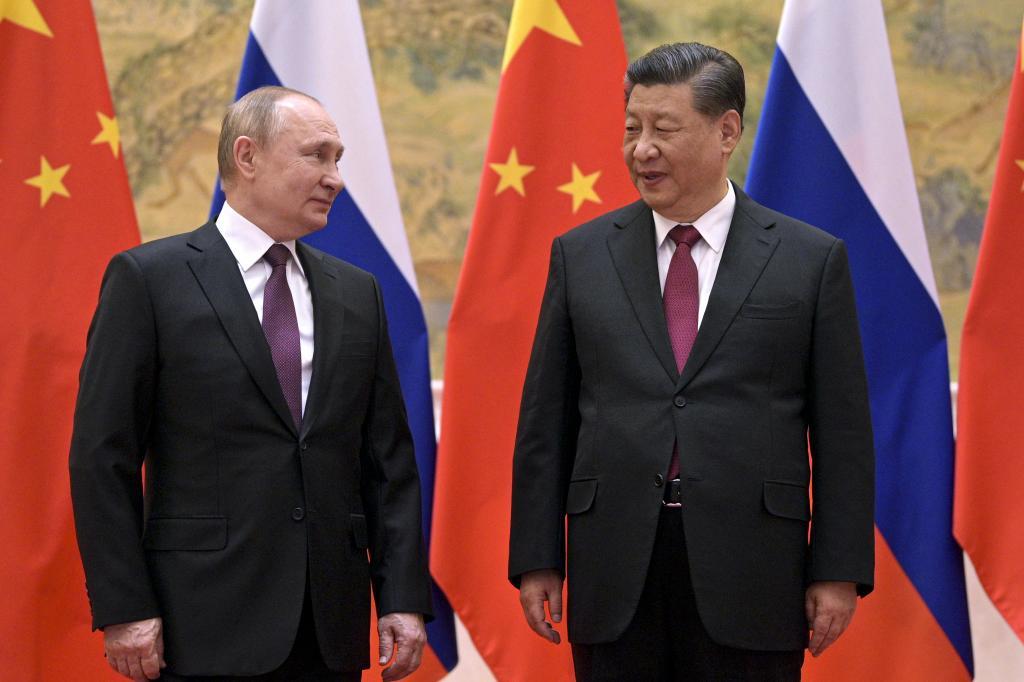Minutes after reports emerged about a first meeting between Vladimir Putin and Donald Trump, although there was no official announcement yet regarding the exact day and location, the Russian leader picked up the phone to personally inform his Chinese counterpart Xi Jinping about the news.
Beijing wanted to make it clear that the last conversation between the two allies that took place last Friday was not scheduled and was at Moscow's request. These two precise notes are important because they not only reveal the close relationship between Putin and Xi, but also Russia's care to keep its neighbor informed at all times about the discussions with Washington.
China's state broadcaster CCTV stated that Putin updated Xi on the latest developments regarding the war in Ukraine and the meeting he was going to have with Trump, the first between the leaders of the two countries since 2021, scheduled for August 15 in Alaska to discuss a possible ceasefire in Ukraine.
"President Xi conveyed to his Russian counterpart that China hopes Moscow and Washington will improve their relations and promote a political solution to the Ukraine crisis," the Chinese interpretation of the conversation stated. Beijing's official statements continue to refer to the large-scale invasion of Ukraine by the Russian regime in 2022 as a "crisis."
To dispel any doubts, the Chinese side also quoted Putin reaffirming the "comprehensive strategic partnership" that the Russian leader signed with Xi shortly before the attack on Ukraine. "This partnership will not change under any circumstances," they emphasized.
Some editorials in Chinese state media particularly highlight this last part, which can be interpreted as an intention to emphasize Putin's loyalty to Xi after the Asian superpower has economically supported Russia all these years, helping the Kremlin bypass Western sanctions, especially by buying discounted oil. This is in addition to the return of Trump to the White House, which led to many analyses from Washington about the Republican's intentions to distance Putin from Xi, prompting a strong reaction from Chinese spokespersons who reiterated the mantra that the "partnership is unbreakable."
From August 31 to September 1, the Russian president will be in the Chinese city of Tianjin participating in the summit of the Shanghai Cooperation Organization, a regional grouping that also includes countries like India and Iran. Subsequently, in Beijing, Xi will have a bilateral meeting with Putin, who will also attend the grand military parade on September 3 that the Chinese army is preparing to commemorate the 80th anniversary of the victory over Japan in World War II. In May, it was Xi who was in Moscow attending the parade organized by the Kremlin.
Since the beginning of the war in Ukraine, Chinese leaders have tried to portray Beijing as a neutral actor in the conflict and a potential mediator for peace. The world's second-largest economy even presented a peace proposal that included respecting Ukraine's sovereignty, calling for a ceasefire, and acknowledging Russia's legitimate security concerns regarding NATO expansion. Unlike Trump, at least publicly, Beijing has never suggested that Kiev should cede territory to Russia as part of a possible peace agreement.
Some authoritative voices from the Chinese military even expressed readiness this year to send peacekeeping troops to Ukraine to help preserve any negotiated ceasefire between Moscow and Kiev. However, China's actions in this regard have not gone beyond public statements because both the US and the European Union accuse Xi's government of fueling Putin's war machinery by selling Moscow dual-use technologies used by the Russian military.
In addition to the highlighted call to Xi, the Kremlin reported that Putin had also spoken with Indian Prime Minister Narendra Modi to update him on the discussions he had last week with US envoy to Moscow, Steve Witkoff. India also has a close relationship with Russia since Soviet times and this week faced a severe commercial blow from its other ally, the United States, when Trump announced an additional 25% tariff on Indian products to penalize New Delhi for its purchases of Russian oil.
"I had a very good and detailed conversation with my friend, President Putin. I thanked him for sharing the latest developments in Ukraine," Modi said. Putin also shared the progress of negotiations with Washington with the leaders of Belarus, South Africa, Kazakhstan, Uzbekistan, and the United Arab Emirates.
